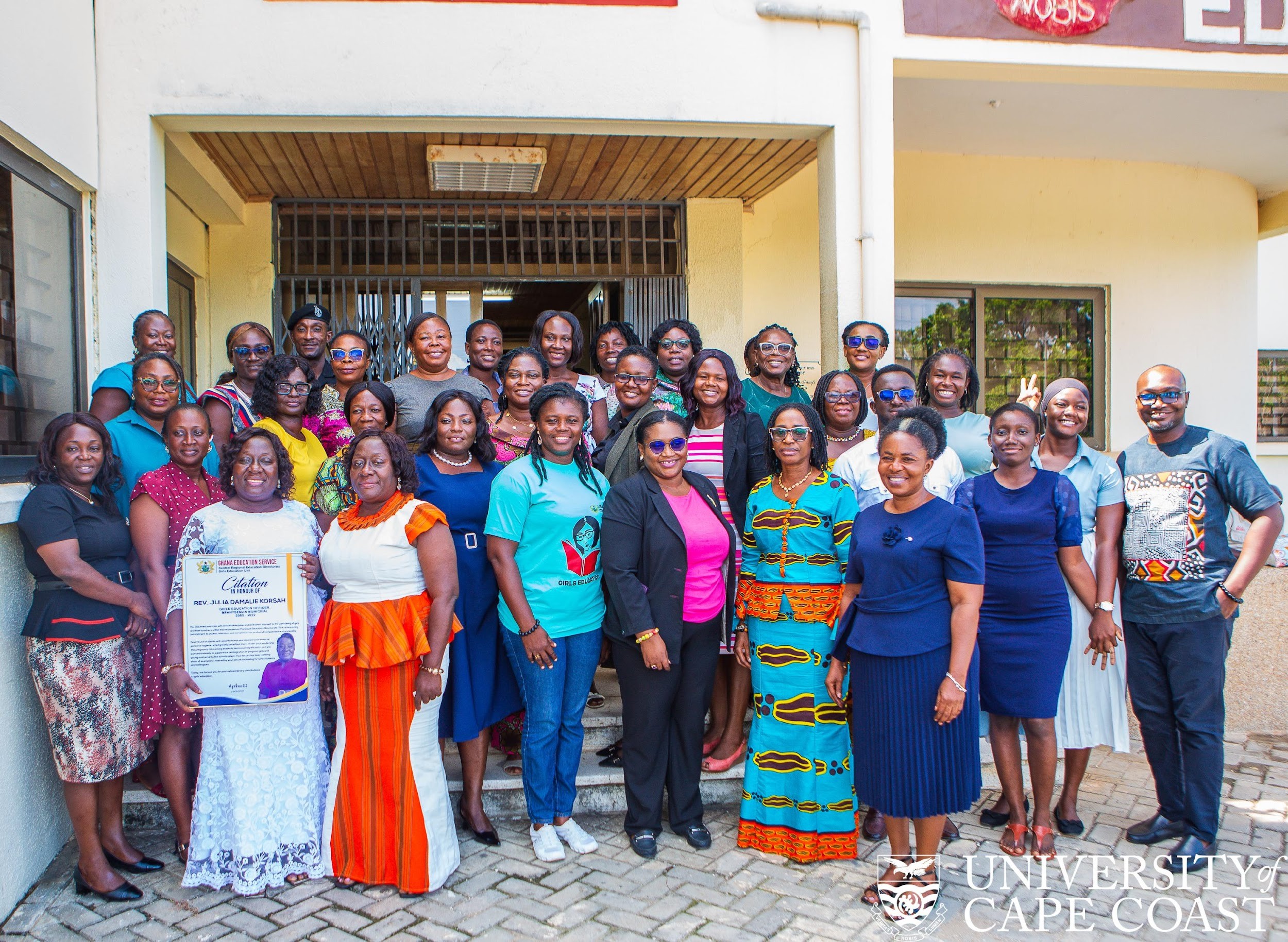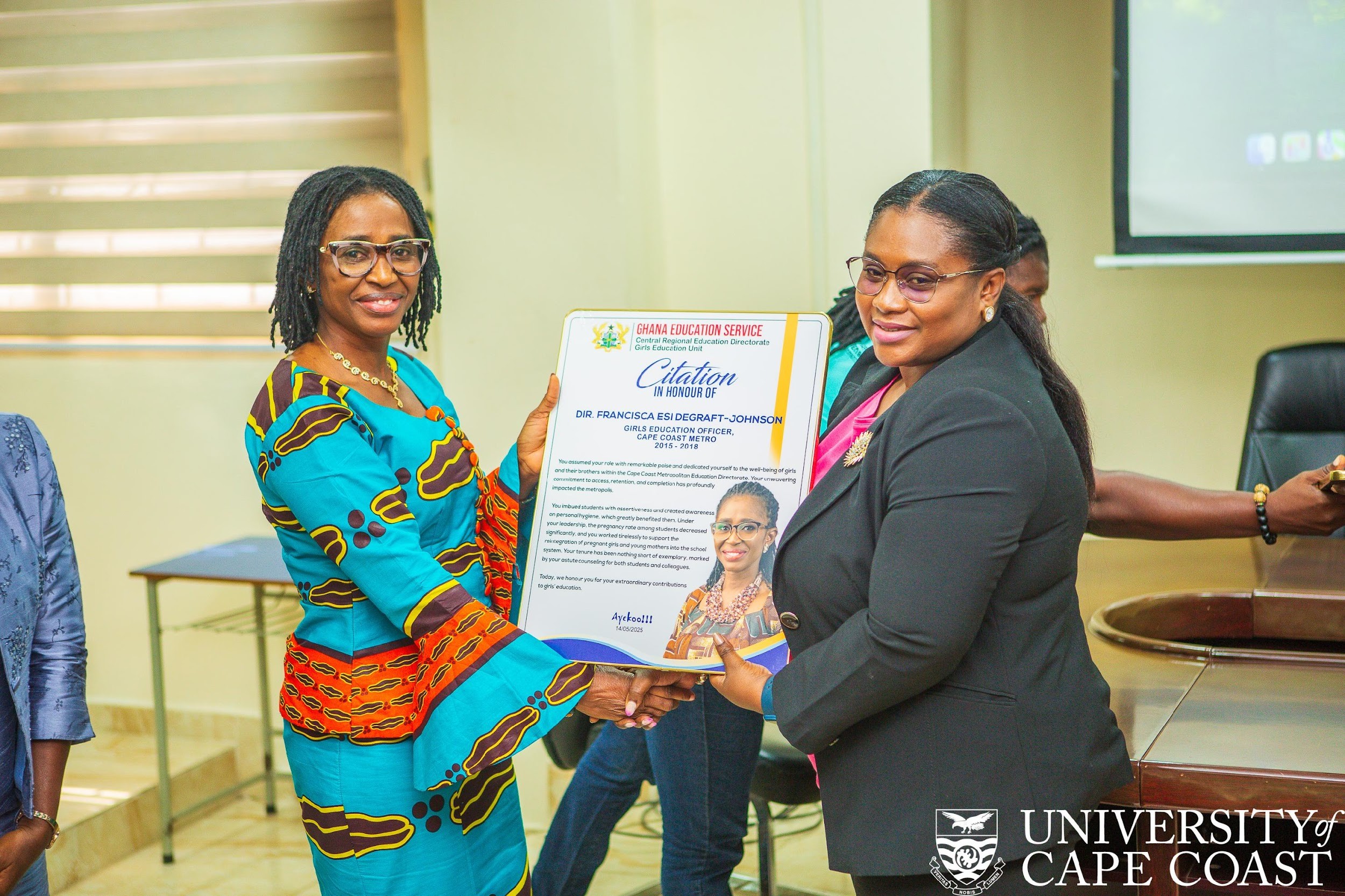The Centre for Gender Research, Advocacy and Documentation (CEGRAD) of the University of Cape Coast (UCC), in collaboration with the Girls’ Education Unit of the Ghana Education Service (GES), has held a workshop on fostering gender-sensitive and safe learning environments.
Themed, “Promoting Safe and Gender-Sensitive Learning Environments for All”, the event brought together educators, advocates, and law enforcement personnel to address gender issues, sexual harassment, and inclusive education practices.
In her opening remarks, the Deputy Regional Director of Education for the Central Region, Mrs Harriet Idun Sagoe, encouraged participants to be inquisitive.
“Ask, learn, and in learning you have to ask questions, so ask all the questions,” she urged.
The first presentation, delivered by Dr Yvonne Ami Adjakloe, Coordinator of Advocacy and Outreach (CEGRAD, UCC), focused on "Understanding Gender". Drawing on the work of philosopher Simone de Beauvoir, Dr Adjakloe explained the distinction between sex and gender.
“Sex is biologically determined and universal,” she noted, “whereas gender is socially constructed, acquired at birth, and not universal," she enlightened.
She discussed key concepts such as equality, equity, liberality, justice and inclusion.
“Equality is about providing everyone with the same platform, while equity ensures that those in need receive the appropriate support,” she emphasized.
Director of CEGRAD-UCC, Prof Eunice Fay Amissah (R), presenting a citation of honour to a retired GES Girls Education Officer
“Your role is to help change the narrative by supporting equality through altering institutionalised discriminatory practices,” Dr. Adjakloe concluded.
Dr John Oti Amoah, a Research Fellow at CEGRAD, presented on 'Receiving and handling sexual harassment cases.'
He outlined various forms of harassment, including unwanted sexual advances, inappropriate touching, and the sharing of explicit photos and messages. He emphasised three key elements in identifying harassment: the receiver’s interpretation, the harasser’s intention, and the effect of the act.
“Sexual harassment is not just about the act itself, it’s about how it is received and the context in which it occurs,” Dr Amoah explained.
The final presentation was by Detective Chief Inspector Benjamin Wilson of the Domestic Violence and Victim Support Unit (DOVVSU) in Cape Coast. He addressed the legal framework surrounding defilement and rape in Ghana.
“Forceful sexual advancements and intercourse with a child below 16 years with or without consent, constitute defilement. Once the individual is above the age of 16, it is considered rape", he said.
He cautioned participants to be careful when handling complainants and sexual offences.
The workshop concluded with the presentation of citations to retired GES Girls Education Officers in the Central Region.
Source: Documentation and Information Section-UCC


